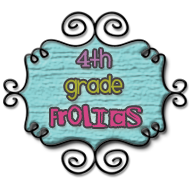successfully memorized the list of words each week, others were not yet ready for the challenge presented by the words on the list. Still others already knew the words and therefore, no new learning occurred. There was little or no transfer from the memorized words to the students’ daily writing. Research shows that memorizing words and rules, without a sense of why they should be learned, is not effective. By memorizing a list of spelling words each week, students may learn a finite number of words in their school career.
However, by learning patterns, such as the –ake pattern, students will be able to build many new words such as shake, taken, remake, and earthquake. This way of learning how words work supports students in transferring their knowledge when problem-solving with new text and writing unfamiliar words in all subject areas. This is the foundation of “word study.”
Word study is a problem-solving approach where the student uses many strategies to make sense of unknown words. It is based on a progression of development and includes instruction in the relationship of letters and sounds, patterns found in words, and the origin of words. Word study instruction occurs in the context of reading and writing workshop. The desired result is for students to become proficient readers and writers, using their knowledge of how words work to help them in all areas of communication both in and out of school.
Since word study knowledge extends beyond memorization of a weekly list, student learning will be assessed continuously through authentic, differentiated measures, such as the observation and evaluation of the student’s daily writing and reading. THERE WILL NOT BE A WEELY SPELLING LIST SENT HOME ON MONDAYS, BUT INSTEAD, A WEEKLY SKILL, ALONG WITH AT- HOME ACTIVITIES, TO ENSURE SUCCESS.
Word study is taught using an inquiry approach where students are guided through explorations of words. These explorations will help students discover spelling patterns, as well as generalizations that apply to many words. Although students will not have a weekly list of words to memorize, there are many ways you can support their word study learning. Attached you will find a list of specific activities you and your child can enjoy doing together while discovering how words work."-mvisd
Suggested Ideas for Parent Support with Word Study
· Encourage your child to write at home for a variety of purposes-lists, letters, stories, messages, notes, etc.
· Encourage your child to read a variety of texts that will introduce him/her to new words
· Search for or cut out words in magazines, catalogs or newspapers that contain a focus spelling pattern (-ick, -ack, -ash)
· For younger children, play with language through word games, songs, rhymes and poetry
· Search for examples of contractions, homophones, apostrophes, words that end with silent e, prefixes, suffixes, etc.
· Reinforce the strategic work done at school. When a child asks, “How do I spell the word _______?” parents may reply:
o What chunks do you hear?
o What sounds do you hear?
o Say it slowly.
o Try writing it two ways and pick the way that looks right.
o Do you know another word that sounds like that word?
o Do you know another word that looks like that word?
· Explore words with your child through the following activities:
o Write any smaller words you can see in the word.
o Write something that surprised you about the word and something that will help you remember how to spell it.
o Write any other words that have the same spelling pattern. Check a resource to make sure you are right.
o Can you add a letter to make a new word?
o Can you delete a letter to make a new word?
o Can you change a letter to make a new word?
o Can you make a chain of words by changing one letter at a time?
o Can you make a compound word with any of your words?
o Can you change any words to plurals?
o Can you add any prefixes or suffixes to any of your words to create other words?
· Play a family game!
Scrabble Bananagrams Websites: puzzlemaker.com yourdictionary.com
Upwords Mad Libs bookworm.com wordtwist.com
Boggle Seek and Finds kidspell.com spellingcity.com
Wheel of Fortune Crossword Puzzles spellingbeethegame.com








